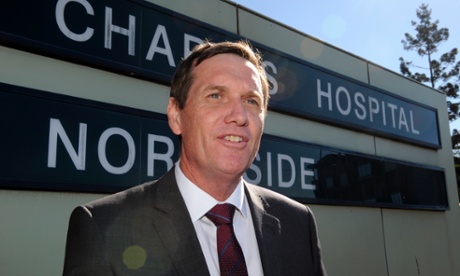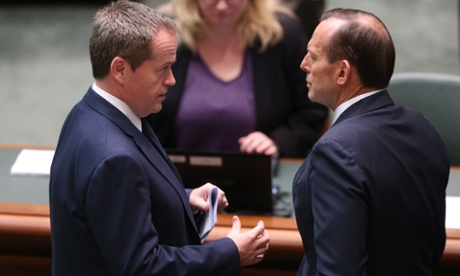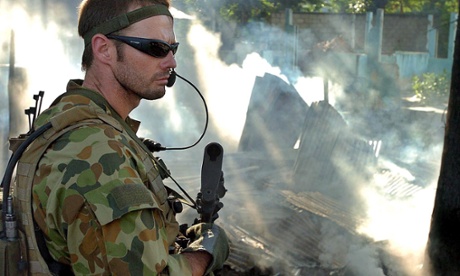Recently my favorite showrunner Shonda Rhimes gave the commencement address at Dartmouth and it really resonated with me. Not because of the
"Be a Doer, Not a Dreamer" mantra that a lot of others were inspired by (though that's great too) but because she addressed a question that she gets asked (and so do I) all the time:
How do you do it all? Though I haven't achieved even a modicum of the success she has, I am often asked by my childless friends how in the world do I balance being a mother of three with the pursuit of such a crazy, difficult and sometimes all-consuming acting/writing career? Her answer is EXACTLY how I feel:
"As a very successful woman, a single mother of three, who constantly gets asked the question 'How do you do it all?' For once I am going to answer that question with 100 percent honesty here for you now. Because it's just us. Because it's our fireside chat. Because somebody has to tell you the truth.
Shonda, how do you do it all?
The answer is this: I don't.
Whenever you see me somewhere succeeding in one area of my life, that almost certainly means I am failing in another area of my life.
If I am killing it on a Scandal script for work, I am probably missing bath and story time at home. If I am at home sewing my kids' Halloween costumes, I'm probably blowing off a rewrite I was supposed to turn in. If I am accepting a prestigious award, I am missing my baby's first swim lesson. If I am at my daughter's debut in her school musical, I am missing Sandra Oh's last scene ever being filmed at Grey's Anatomy. If I am succeeding at one, I am inevitably failing at the other. That is the tradeoff. That is the Faustian bargain one makes with the devil that comes with being a powerful working woman who is also a powerful mother. You never feel a hundred percent OK; you never get your sea legs; you are always a little nauseous. Something is always lost.
Something is always missing.
And yet. I want my daughters to see me and know me as a woman who works. I want that example set for them. I like how proud they are when they come to my offices and know that they come to Shondaland. There is a land and it is named after their mother. In their world, mothers run companies. In their world, mothers own Thursday nights. In their world, mothers work. And I am a better mother for it. The woman I am because I get to run Shondaland, because I get to write all day, because I get to spend my days making things up, that woman is a better person—and a better mother. Because that woman is happy. That woman is fulfilled. That woman is whole. I wouldn't want them to know the me who didn't get to do this all day long. I wouldn't want them to know the me who wasn't doing."
Nail on head! I literally cannot add another word to that as it perfectly expresses how I feel about balancing the two and why I'm willing to struggle to live in this ridiculously expensive city in order to pursue a career that truly fulfills me in a way that no other job has.
Even if you're not a parent, there are still some wonderful gems in this speech. You can watch the full video
here or read the transcript courtesy of Dartmouth below.
"President Hanlon, faculty, staff, honored guests, parents, students, families and friends—good morning and congratulations to the Dartmouth graduating class of 2014!So.
This is weird.
Me giving a speech. In general, I do not like giving speeches. Giving a speech requires standing in front of large groups of people while they look at you and it also requires talking. I can do the standing part OK. But the you looking and the me talking ... I am not a fan. I get this overwhelming feeling of fear. Terror, really. Dry mouth, heart beats superfast, everything gets a little bit slow motion. Like I might pass out. Or die. Or poop my pants or something. I mean, don't worry. I'm not going to pass out or die or poop my pants. Mainly because just by telling you that it could happen, I have somehow neutralized it as an option. Like as if saying it out loud casts some kind of spell where now it cannot possibly happen now. Vomit. I could vomit. See. Vomiting is now also off the table. Neutralized it. We're good.
Anyway, the point is. I do not like to give speeches. I'm a writer. I'm a TV writer. I like to write stuff for other people to say. I actually contemplated bringing Ellen Pompeo or Kerry Washington here to say my speech for me ... but my lawyer pointed out that when you drag someone across state lines against their will, the FBI comes looking for you, so...
I don't like giving speeches, in general, because of the fear and terror. But this speech? This speech, I really did not want to give.
A Dartmouth Commencement speech? Dry mouth. Heart beats so, so fast. Everything in slow motion. Pass out, die, poop.
Look, it would be fine if this were, 20 years ago. If it were back in the day when I graduated from Dartmouth. Twenty-three years ago, I was sitting right where you are now. And I was listening to Elizabeth Dole speak. And she was great. She was calm and she was confident. It was just ... different. It felt like she was just talking to a group of people. Like a fireside chat with friends. Just Liddy Dole and like 9,000 of her closest friends. Because it was 20 years ago. And she was just talking to a group of people.
Now? Twenty years later? This is no fireside chat. It's not just you and me. This speech is filmed and streamed and tweeted and uploaded. NPR has like, a whole site dedicated to Commencement speeches. A whole site just about commencement speeches. There are sites that rate them and mock them and dissect them. It's weird. And stressful. And kind of vicious if you're an introvert perfectionist writer who hates speaking in public in the first place.
When President Hanlon called me—and by the way, I would like to thank President Hanlon for asking me way back in January, thus giving me a full six months of terror and panic to enjoy. When President Hanlon called me, I almost said no. Almost.
Dry mouth. Heart beats so, so fast. Everything in slow motion. Pass out, die, poop.
But I'm here. I am gonna do it. I'm doing it. You know why?
Because I like a challenge. And because this year I made myself a promise that I was going to do the stuff that terrifies me. And because, 20-plus years ago when I was trudging uphill from the River Cluster through all that snow to get to the Hop for play rehearsal, I never imagined that I would one day be standing here, at the Old Pine lectern. Staring out at all of you. About to throw down on some wisdom in the Dartmouth Commencement address.
So, you know, yeah. Moments.
Also, I'm here because I really, really wanted some EBAs.
OK.
I want to say right now that every single time someone asked me what I was going to talk about in this speech, I would boldly and confidently tell them that I had all kinds wisdom to share. I was lying. I feel wildly unqualified to give you advice. There is no wisdom here. So all I can do is talk about some stuff that could maybe be useful to you, from one Dartmouth grad to another. Some stuff that won't ever show up in a Meredith Grey voiceover or a Papa Pope monologue. Some stuff I probably shouldn't be telling you here now because of the uploading and the streaming and the tweeting. But I am going to pretend that it is 20 years ago. That it's just you and me. That we're having a fireside chat. Screw the outside world and what they think. I've already said "poop" like five times already anyway ... things are getting real up in here.
OK, wait. Before I talk to you. I want to talk to your parents. Because the other thing about it being 20 years later is that I'm a mother now. So I know some things, some very different things. I have three girls. I've been to the show. You don't know what that means, but your parents do. You think this day is all about you. But your parents ... the people who raised you ... the people who endured you ... they potty trained you, they taught you to read, they survived you as a teenager, they have suffered 21 years and not once did they kill you. This day ... you call it your graduation day. But this day is not about you. This is their day. This is the day they take back their lives, this is the day they earn their freedom. This day is their Independence Day. So, parents, I salute you. And as I have an eight-month-old, I hope to join your ranks of freedom in 20 years!
OK. So here comes the real deal part of the speech, or you might call it, Some Random Stuff Some Random Alum Who Runs a TV Show Thinks I Should Know Before I Graduate:
You ready?
When people give these kinds of speeches, they usually tell you all kinds of wise and heartfelt things. They have wisdom to impart. They have lessons to share. They tell you: Follow your dreams. Listen to your spirit. Change the world. Make your mark. Find your inner voice and make it sing. Embrace failure. Dream. Dream and dream big. As a matter of fact, dream and don't stop dreaming until all of your dreams come true.
I think that's crap.
I think a lot of people dream. And while they are busy dreaming, the really happy people, the really successful people, the really interesting, engaged, powerful people, are busy doing.
The dreamers. They stare at the sky and they make plans and they hope and they talk about it endlessly. And they start a lot of sentences with "I want to be ..." or "I wish."
"I want to be a writer." "I wish I could travel around the world."
And they dream of it. The buttoned-up ones meet for cocktails and they brag about their dreams, and the hippie ones have vision boards and they meditate about their dreams. Maybe you write in journals about your dreams or discuss it endlessly with your best friend or your girlfriend or your mother. And it feels really good. You're talking about it, and you're planning it. Kind of. You are blue-skying your life. And that is what everyone says you should be doing. Right? I mean, that's what Oprah and Bill Gates did to get successful, right?
No.
Dreams are lovely. But they are just dreams. Fleeting, ephemeral, pretty. But dreams do not come true just because you dream them. It's hard work that makes things happen. It's hard work that creates change.
So, Lesson One, I guess is: Ditch the dream and be a doer, not a dreamer. Maybe you know exactly what it is you dream of being, or maybe you're paralyzed because you have no idea what your passion is. The truth is, it doesn't matter. You don't have to know. You just have to keep moving forward. You just have to keep doing something, seizing the next opportunity, staying open to trying something new. It doesn't have to fit your vision of the perfect job or the perfect life. Perfect is boring and dreams are not real. Just ... do. So you think, "I wish I could travel." Great. Sell your crappy car, buy a ticket to Bangkok, and go. Right now. I'm serious.
You want to be a writer? A writer is someone who writes every day, so start writing. You don't have a job? Get one. Any job. Don't sit at home waiting for the magical opportunity. Who are you? Prince William? No. Get a job. Go to work. Do something until you can do something else.
I did not dream of being a TV writer. Never, not once when I was here in the hallowed halls of the Ivy League, did I say to myself, "Self, I want to write TV."
You know what I wanted to be? I wanted to be Nobel Prize-winning author Toni Morrison. That was my dream. I blue sky'ed it like crazy. I dreamed and dreamed. And while I was dreaming, I was living in my sister's basement. Dreamers often end up living in the basements of relatives, FYI. Anyway, there I was in that basement, and I was dreaming of being Nobel Prize-winning author Toni Morrison. And guess what? I couldn't be Nobel Prize-winning author Toni Morrison, because Toni Morrison already had that job and she wasn't interested in giving it up. So one day I was sitting in that basement and I read an article that said—it was in The New York Times—and it said it was harder to get into USC Film School than it was to get into Harvard Law School. And I thought I could dream about being Toni Morrison, or I could do.
At film school, I discovered an entirely new way of telling stories. A way that suited me. A way that brought me joy. A way that flipped this switch in my brain and changed the way I saw the world. Years later, I had dinner with Toni Morrison. All she wanted to talk about was Grey's Anatomy. That never would have happened if I hadn't stopped dreaming of becoming her and gotten busy becoming myself.
Lesson Two. Lesson two is that tomorrow is going to be the worst day ever for you.
When I graduated from Dartmouth that day in 1991, when I was sitting right where you are and I was staring up at Elizabeth Dole speaking, I will admit that I have no idea what she was saying. Couldn't even listen to her. Not because I was overwhelmed or emotional or any of that. But because I had a serious hangover. Like, an epic painful hangover because (and here is where I apologize to President Hanlon because I know that you are trying to build a better and more responsible Dartmouth and I applaud you and I admire you and it is very necessary) but I was really freaking drunk the night before. And the reason I'd been so drunk the night before, the reason I'd done upside down margarita shots at Bones Gate was because I knew that after graduation, I was going to take off my cap and gown, my parents were going to pack my stuff in the car and I was going to go home and probably never come back to Hanover again. And even if I did come back, it wouldn't matter because it wouldn't be the same because I didn't live here anymore.
On my graduation day, I was grieving.
My friends were celebrating. They were partying. They were excited. So happy. No more school, no more books, no more teachers' dirty looks. And I was like, are you freaking kidding me? You get all the fro‑yo you want here! The gym is free. The apartments in Manhattan are smaller than my suite in North Mass. Who cared if there was no place to get my hair done? All my friends are here. I have a theatre company here. I was grieving. I knew enough about how the world works, enough about how adulthood plays out, to be grieving.
Here's where I am going to embarrass myself and make you all feel maybe a little bit better about yourselves. I literally lay down on the floor of my dorm room and cried while my mother packed up my room. I refused to help her. Like, hell no I won't go. I nonviolent-protested leaving here. Like, went limp like a protestor, only without the chanting—it was really pathetic. If none of you lie down on a dirty hardwood floor and cry today while your mommy packs up your dorm room, you are already starting your careers out ahead of me. You are winning.
But here's the thing. The thing I really felt like I knew was that the real world sucks. And it is scary. College is awesome. You're special here. You're in the Ivy League, you are at the pinnacle of your life's goals at this point—your entire life up until now has been about getting into some great college and then graduating from that college. And now, today, you have done it. The moment you get out of college, you think you are going to take the world by storm. All doors will be opened to you. It's going to be laughter and diamonds and soirees left and right.
What really happens is that, to the rest of the world, you are now at the bottom of the heap. Maybe you're an intern, possibly a low-paid assistant. And it is awful. The real world, it sucked so badly for me. I felt like a loser all of the time. And more than a loser? I felt lost.
Which brings me to clarify lesson number two.
Tomorrow is going to be the worst day ever for you. But don't be an asshole.
Here's the thing. Yes, it is hard out there. But hard is relative. I come from a middle-class family, my parents are academics, I was born after the civil rights movement, I was a toddler during the women's movement, I live in the United States of America, all of which means I'm allowed to own my freedom, my rights, my voice, and my uterus; and I went to Dartmouth and I earned an Ivy League degree.
The lint in my navel that accumulated while I gazed at it as I suffered from feeling lost about how hard it was to not feel special after graduation ... that navel lint was embarrassed for me.
Elsewhere in the world, girls are harmed simply because they want to get an education. Slavery still exists. Children still die from malnutrition. In this country, we lose more people to handgun violence than any other nation in the world. Sexual assault against women in America is pervasive and disturbing and continues at an alarming rate.
So yes, tomorrow may suck for you—as it did for me. But as you stare at the lint in your navel, have some perspective. We are incredibly lucky. We have been given a gift. An incredible education has been placed before us. We ate all the fro-yo we could get our hands on. We skied. We had EBAs at 1 a.m. We built bonfires and got frostbite and had all the free treadmills. We beer-ponged our asses off. Now it's time to pay it forward.
Find a cause you love. It's OK to pick just one. You are going to need to spend a lot of time out in the real world trying to figure out how to stop feeling like a lost loser, so one cause is good. Devote some time every week to it.
Oh. And while we are discussing this, let me say a thing. A hashtag is not helping. #yesallwomen #takebackthenight #notallmen #bringbackourgirls #StopPretendingHashtagsAreTheSameAsDoingSomething
Hashtags are very pretty on Twitter. I love them. I will hashtag myself into next week. But a hashtag is not a movement. A hashtag does not make you Dr. King. A hashtag does not change anything. It's a hashtag. It's you, sitting on your butt, typing on your computer and then going back to binge-watching your favorite show. I do it all the time. For me, it's Game of Thrones.
Volunteer some hours. Focus on something outside yourself. Devote a slice of your energies towards making the world suck less every week. Some people suggest doing this will increase your sense of well-being. Some say it's good karma. I say that it will allow you to remember that, whether you are a legacy or the first in your family to go to college, the air you are breathing right now is rare air. Appreciate it. Don't be an asshole.
Lesson number three.
So you're out there, and you're giving back and you're doing, and it's working. And life is good. You are making it. You're a success. And it's exciting and it's great. At least it is for me. I love my life. I have three TV shows at work and I have three daughters at home. And it's all amazing, and I am truly happy. And people are constantly asking me, how do you do it?
And usually, they have this sort of admiring and amazed tone.
Shonda, how do you do it all?
Like I'm full of magical magic and special wisdom-ness or something.
How do you do it all?
And I usually just smile and say like, "I'm really organized." Or if I'm feeling slightly kindly, I say, "I have a lot of help."
And those things are true. But they also are not true.
And this is the thing that I really want to say. To all of you. Not just to the women out there. Although this will matter to you women a great deal as you enter the work force and try to figure out how to juggle work and family. But it will also matter to the men, who I think increasingly are also trying to figure out how to juggle work and family. And frankly, if you aren't trying to figure it out, men of Dartmouth, you should be. Fatherhood is being redefined at a lightning-fast rate. You do not want to be a dinosaur.
So women and men of Dartmouth: As you try to figure out the impossible task of juggling work and family and you hear over and over and over again that you just need a lot of help or you just need to be organized or you just need to try just a little bit harder ... as a very successful woman, a single mother of three, who constantly gets asked the question "How do you do it all?" For once I am going to answer that question with 100 percent honesty here for you now. Because it's just us. Because it's our fireside chat. Because somebody has to tell you the truth.
Shonda, how do you do it all?
The answer is this: I don't.
Whenever you see me somewhere succeeding in one area of my life, that almost certainly means I am failing in another area of my life.
If I am killing it on a Scandal script for work, I am probably missing bath and story time at home. If I am at home sewing my kids' Halloween costumes, I'm probably blowing off a rewrite I was supposed to turn in. If I am accepting a prestigious award, I am missing my baby's first swim lesson. If I am at my daughter's debut in her school musical, I am missing Sandra Oh's last scene ever being filmed at Grey's Anatomy. If I am succeeding at one, I am inevitably failing at the other. That is the tradeoff. That is the Faustian bargain one makes with the devil that comes with being a powerful working woman who is also a powerful mother. You never feel a hundred percent OK; you never get your sea legs; you are always a little nauseous. Something is always lost.
Something is always missing.
And yet. I want my daughters to see me and know me as a woman who works. I want that example set for them. I like how proud they are when they come to my offices and know that they come to Shondaland. There is a land and it is named after their mother. In their world, mothers run companies. In their world, mothers own Thursday nights. In their world, mothers work. And I am a better mother for it. The woman I am because I get to run Shondaland, because I get write all day, because I get to spend my days making things up, that woman is a better person—and a better mother. Because that woman is happy. That woman is fulfilled. That woman is whole. I wouldn't want them to know the me who didn't get to do this all day long. I wouldn't want them to know the me who wasn't doing.
Lesson Number Three is that anyone who tells you they are doing it all perfectly is a liar.
OK.
I fear I've scared you or been a little bit bleak, and that was not my intention. It is my hope that you run out of here, excited, leaning forward, into the wind, ready to take the world by storm. That would be so very fabulous. For you to do what everyone expects of you. For you to just go be exactly the picture of hardcore Dartmouth awesome.
My point, I think, is that it is OK if you don't. My point is that it can be scary to graduate. That you can lie on the hardwood floor of your dorm room and cry while your mom packs up your stuff. That you can have an impossible dream to be Toni Morrison that you have to let go of. That every day you can feel like you might be failing at work or at your home life. That the real world is hard.
And yet, you can still wake up every single morning and go, "I have three amazing kids and I have created work I am proud of, and I absolutely love my life and I would not trade it for anyone else's life ever."
You can still wake up one day and find yourself living a life you never even imagined dreaming of.
My dreams did not come true. But I worked really hard. And I ended up building an empire out of my imagination. So my dreams? Can suck it.
You can wake up one day and find that you are interesting and powerful and engaged. You can wake up one day and find that you are a doer.
You can be sitting right where you are now. Looking up at me. Probably—hopefully, I pray for you—hung over. And then 20 years from now, you can wake up and find yourself in the Hanover Inn full of fear and terror because you are going to give the Commencement speech. Dry mouth. Heart beats so, so fast. Everything in slow motion. Pass out, die, poop.
Which one of you will it be? Which member of the 2014 class is going to find themselves standing up here? Because I checked and it is pretty rare for an alum to speak here. It's pretty much just me and Robert Frost and Mr. Rogers, which is crazy awesome.
Which one of you is going to make it up here? I really hope that it's one of you. Seriously.
When it happens, you'll know what this feels like.
Dry mouth. Heart beats so, so fast. Everything moves in slow motion.
Graduates, every single one of you, be proud of your accomplishments. Make good on your diplomas.
You are no longer students. You are no longer works in progress. You are now citizens of the real world. You have a responsibility to become a person worthy of joining and contributing to society. Because who you are today ... that's who you are.
So be brave.
Be amazing.
Be worthy.
And every single time you get a chance?
Stand up in front of people.
Let them see you. Speak. Be heard.
Go ahead and have the dry mouth.
Let your heart beat so, so fast.
Watch everything move in slow motion.
So what?
You what?
You pass out, you die, you poop?
No.
And this is really the only lesson you'll ever need to know ...
You take it in.
You breathe this rare air.
You feel alive.
You be yourself.
You truly finally always be yourself.
Thank you. Good luck."














 Dr Anthony Lynham secured 61.5% of the vote after preferences in Stafford. Photograph: Dan Peled/AAP
Dr Anthony Lynham secured 61.5% of the vote after preferences in Stafford. Photograph: Dan Peled/AAP Opposition leader Bill Shorten maintains a five-point lead over Tony Abbott as preferred prime minister. Photograph: Mike Bowers for the Guardian
Opposition leader Bill Shorten maintains a five-point lead over Tony Abbott as preferred prime minister. Photograph: Mike Bowers for the Guardian Edward Snowden's NSA leaks have prompted a crackdown by the Australian attorney general on the reporting of 'special intelligence operations'. Photograph: Trevor Paglen/REX
Edward Snowden's NSA leaks have prompted a crackdown by the Australian attorney general on the reporting of 'special intelligence operations'. Photograph: Trevor Paglen/REX

 'Our current Defence Act does not allow for any level of transparent decision making.' Photograph: EPA
'Our current Defence Act does not allow for any level of transparent decision making.' Photograph: EPA













 Photo: Many budget savings proposals by the Government have been blocked in the Senate. (AAP)
Photo: Many budget savings proposals by the Government have been blocked in the Senate. (AAP) 

